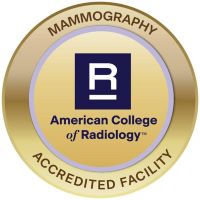Breast Health
Making Breast Health A Priority
Did you know that one in eight women will develop breast cancer in her lifetime? That’s why regular screenings are essential to early detection and the fight against breast cancer. By staying informed and taking preventive action, we can help to minimize the effect this disease has on women in our community.
At Twin County Regional Healthcare, your breast health is important to us. All breasts are not the same. That is why our hospital is proud to offer a wide range of breast health screening services and diagnostic imaging technology to provide customized care and additional peace of mind.

Our Services
Breast cancer screenings play a crucial role in the early detection and successful treatment of breast cancer, significantly improving outcomes for countless individuals. We prioritize your health by offering screening options tailored to meet your specific needs. Whether you are coming in for a routine mammogram or require more specialized imaging, our commitment is to support you every step of the way on your journey to maintaining breast health.
Our Breast Health Services:
Next Steps
Schedule your mammogram.
Call our office to set up your appointment today.
Find a provider.
Some breast screenings may require a provider order. Talk to your provider or find one today.
Early detection saves lives.
Learn more about 3D mammography.
Quality Breast Care, Close to Home
Twin County Regional Healthcare is proud to be recognized as an American College of Radiology Accredited Facility in Mammography.

Talk with your provider about your family history, areas of concern, and breast cancer risk. The sooner any form of breast cancer is detected, the greater the likelihood that treatment will be successful.
Schedule your screening mammogram today by calling 276.236.1680.
Find A Provider
Some breast screenings may require a provider order. Talk to your provider or find one today.
